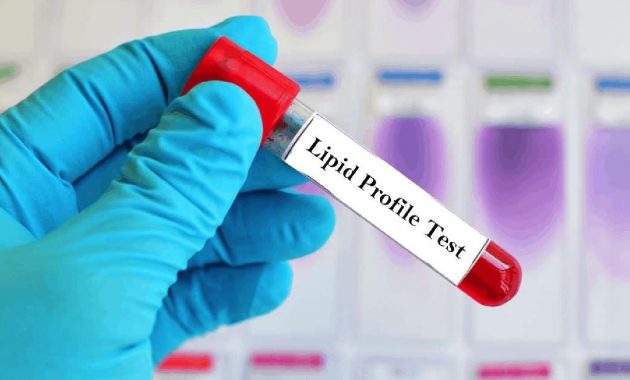Lipid profile testing is important to keep a check on blood lipid levels and overall cardiac health. Learn why it is important!
Lipids are a collection of fats and fat-like substances that perform essential bodily functions. They act as a significant energy source, aid in hormone synthesis, facilitate vitamin absorption and offer insulation. Nevertheless, an imbalance in the types and quantities of lipids can contribute to health problems, particularly cardiovascular diseases. Lipid profile testing, also called lipid panel, offers valuable insights into blood lipid levels and overall cardiac health. So, read on to learn more about lipid panel test cost and significance.
What is a Lipid Panel?
A lipid panel is a blood test designed to measure the levels of certain fat molecules known as lipids in your bloodstream. Typically, the panel includes four different cholesterol measurements and a measurement of your triglycerides. Excess lipids (triglycerides and cholesterol) in your blood can result in the accumulation of plaque in blood vessels and arteries, posing a risk of damage and increasing the likelihood of cardiovascular issues. Consequently, doctors utilise lipid panels for both adults and children to assess the risk of developing cardiovascular diseases such as heart attack, heart disease, and stroke. Lipid panel test cost can vary based on your preferred diagnostic lab. At Apollo 24|7, lipid panel test cost is just ₹800.
What Does a Lipid Panel Involve?
A lipid panel measures five kinds of lipids from a single blood sample, including:
- Low-density Lipoprotein (LDL) Cholesterol: Often referred to as “bad cholesterol,” LDL can accumulate in blood vessels, increasing the risk of cardiovascular disease.
- High-density Lipoprotein (HDL) Cholesterol: Known as “good cholesterol,” HDL assists in reducing the buildup of LDL in blood vessels.
- Very low-density Lipoprotein (VLDL) Cholesterol: Typically present in low amounts in fasting blood samples, VLDL mainly originates from recently consumed food. An elevation of VLDL in fasting samples may indicate abnormal lipid metabolism.
- Total Cholesterol: This represents your total cholesterol level, which encompasses VLDL-C, LDL-C, and HDL-C.
- Triglycerides: This type of fat originates from the food we consume. Elevated triglyceride levels in the blood are linked to cardiovascular disease and pancreatic inflammation.
While these are the primary measurements in a standard lipid panel, some versions of the test may incorporate additional measurements.
Importance of Regular Lipid Panel Testing
The lipid profile test holds significant importance in health management, particularly for cardiac health, for various reasons:
Also Read

Evaluating Risk of Cardiovascular Diseases
Cardiovascular diseases, including stroke and heart disease, are the leading causes of mortality globally. Elevated levels of LDL cholesterol or triglycerides, along with low levels of HDL cholesterol, are substantial risk factors for these conditions. The lipid profile test enables the early detection of abnormal lipid levels, aiding in assessing your risk for developing cardiovascular diseases.
Monitoring and Managing of Existing Health Conditions
If you have been diagnosed with conditions such as hypertension, diabetes, or heart disease, lipid profile tests are crucial for monitoring your condition and guiding treatment. For instance, diabetes often correlates with elevated triglyceride levels and reduced HDL cholesterol, heightening cardiovascular risk. Regular lipid level monitoring ensures that treatment is effective and lipid levels are adequately controlled.
Assessing Effectiveness of Medications and Lifestyle Changes
If you have implemented lifestyle modifications aimed at improving your lipid levels—such as adopting a healthier diet, losing weight, increasing physical activity, or quitting smoking—a lipid profile test can assess the effectiveness of these changes. Additionally, for individuals taking lipid-lowering medications like statins, lipid profile tests are essential to monitor treatment efficacy and make necessary adjustments.
Detecting and Monitoring Genetic Disorders
Certain genetic disorders can lead to abnormal lipid levels. Familial hypercholesterolemia, for instance, is a genetic disorder characterised by high LDL cholesterol levels. Regular lipid panel tests for individuals with a family history of early heart disease or hyperlipidemia aid in the early detection of inherited conditions, allowing for timely treatment to prevent complications.
Although triglyceride and cholesterol levels can greatly impact your overall health, an imbalance in these levels may increase your risk of developing cardiovascular disease. However, an abnormal test result doesn’t always indicate a serious issue or necessitate immediate treatment. Your healthcare provider will consider various factors about your health and medical history before determining the appropriate next steps.
Select Topics of your interest and let us customize your feed.
PERSONALISE NOW
#Importance #Regular #Lipid #Profile #Testing #Cardiovascular #Wellness
